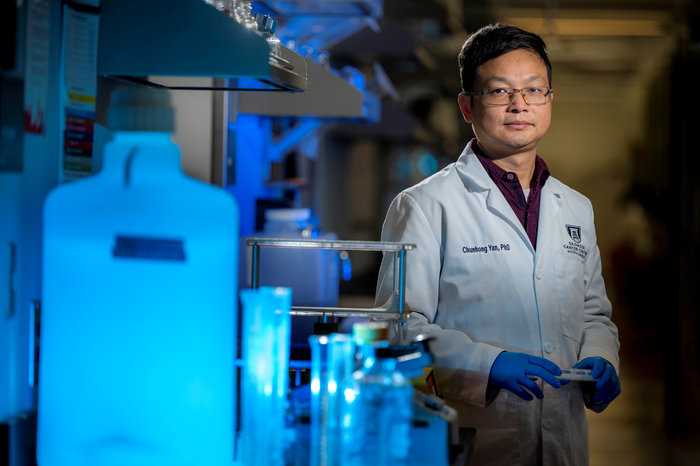
Large doses of iron could be used to kill off drug-resistant prostate cancer cells, scientists believe.
This could be especially prevalent since while there are a variety of treatments, and these usually work at first, some cancers develop resistance after 18-24 months and that dramatically limits the available options.
However, a team of scientists led by Dr. Chunhong Yan of the Medical College of Georgia are hoping to use iron to fight this stubborn disease in a process called ferroptosis, taken from the Latin word for Iron (ferro) and the word for cell death “optosis.”
Iron is important for red blood cells carrying oxygen around the body but large amounts of it can be lethal to cells.
It produces a lot of toxic free radicals, or reactive oxygen species (ROS) which damage the fat component of the cellular membrane.
Lipids, or fats, are important for energy storage and for internal cell signaling. Free radicals cause them to lose their flexibility and efficiency until the cell dies, though exactly why is unclear.
Prostate cancer cells are unusually resistant to this destruction because their lipids are already changed to have the energy they need to grow and spread.
But Dr. Yan’s team has found a gene called ATF3 that can lower the stress threshold of prostate cancer cells and make them more vulnerable to a new iron compound called JKE-1674 which induces ferroptosis.
“When the cell takes up iron, it goes through different processes, which generate a lot of ROS,” said Dr. Yan. “What we are trying to do is take advantage of this side effect to treat prostate cancer.”
Working on a $1.1 million idea development award from the U.S. Department of Defense, his team has also found that combining a chemotherapy drug with one of the body’s natural mechanisms can also help kill prostate cancer cells.
The drug is called bortezomib and it helps activate the ATF3 gene while the compound JKE-1674 inhibits a process called glutathione peroxidase 4, which separates iron and free radicals and allows cells to repair.
Dr. Yan said clinical trials have shown that bortezomib is not very effective at treating prostate cancer on its own but that when combined with JKE-1674 it becomes a powerful weapon.
The next steps are to conduct experiments on mice and see whether advanced prostate cancer can be neutralized using ferroptosis.
REAL ALSO: Men Free of Prostate Cancer Had Guts Fortified By Microbes Found in Yogurt
The scientists have a genetically engineered mouse that produces more ATF3 and they want to see whether this makes prostate cancer cells more vulnerable to ferroptosis as well.
Dr. Yan wants to develop a therapy that could progress quickly from the lab to a clinical trial and help combat what is one of the most common form of cancers in men across the world.
SHARE This Good Cancer News With Your Friends…



















